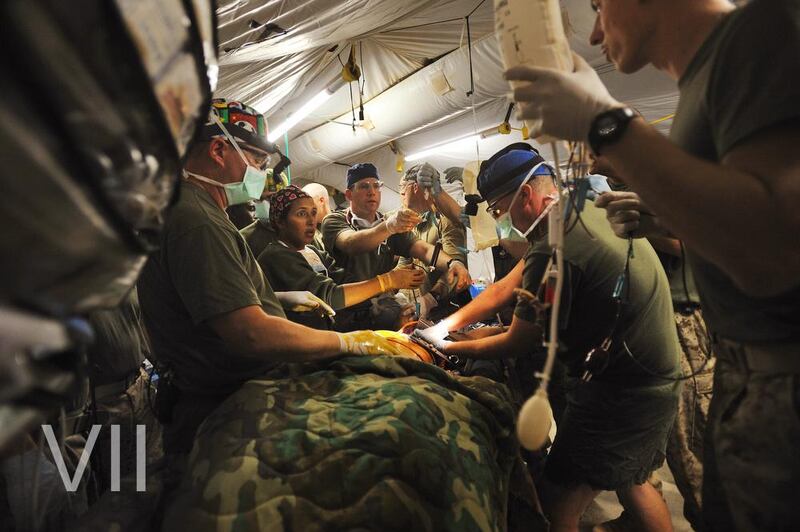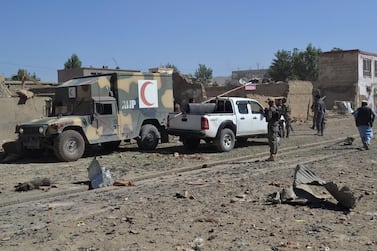Most American military veterans believe that the ongoing 18-year war in Afghanistan is a conflict "not worth fighting," according to new poll results.
The war is the longest in US history and the results come as Washington and the Taliban engage in peace talks in hope of bringing an end to the conflict. But the Taliban refuses to negotiate with the government in Kabul and views the US as an occupying force. Any deal would necessitate a US withdrawal from the country.
As of July 2018, there have been 2,372 US military deaths in Afghanistan and public support for the operation after 9/11 has dwindled as it has dragged on.
"Majorities of both veterans (58 percent) and the public (59 per cent) say the war in Afghanistan was not worth fighting. About four-in-ten or fewer say it was worth fighting," according to the Pew Research Centre.
The same held for the war in Iraq and the US military intervention against ISIS in Syria, with 64 per cent of veterans saying the former was "not worth fighting," and 55 percent saying the latter was "not worth it"
"Veterans who served in either Iraq or Afghanistan are no more supportive of those engagements than those who did not serve in these wars. And views do not differ based on rank or combat experience," the Pew Research Centre said.
The polling had a margin of error of 3.9 per cent for veterans and 3.1 per cent for members of the general public.
Washington has said it wants to seal a political deal with the Taliban, ahead of Afghan presidential polls due in September, to allow foreign forces to begin to withdraw.
The United States held six days of talks in Qatar with the Taliban which ran until Saturday.
Those discussions paused for Sunday and Monday's Afghan summit, which saw around 70 delegates including the Taliban discuss the future of the country.
Afghan President Ashraf Ghani said on Wednesday that now is the "right moment" for peace in the country, calling on the Taliban to negotiate with his government.
Additionally, some members of Ghani's circle attended overlapping talks in the Qatari capital with the Taliban, though only in what they called a "personal capacity".
"In the past 18 years the time was not right for peace, for a realistic peace. Today is the right moment," Mr Ghani said at an EU anti-corruption conference being held in Kabul.
"If we lose this opportunity then the responsibility (for the loss) is big."
Mr Ghani stressed that the Taliban and his government must negotiate.
"We are the two warring sides," he said.
Following days of talks last week with US peace envoy Zalmay Khalilzad, the Taliban met Afghan representatives at an "intra-Afghan dialogue".
The US has insisted on such talks and the two Afghan sides issued a joint resolution pledging a "roadmap for peace" for the war-torn country.
President Trump has said he is unwilling to withdraw the full US force in Afghanistan, describing it as the "Harvard of terrorists".
He said that one general told him that he would rather "attack them over there, than attack them in our land," saying it was "something you always have to think about".






